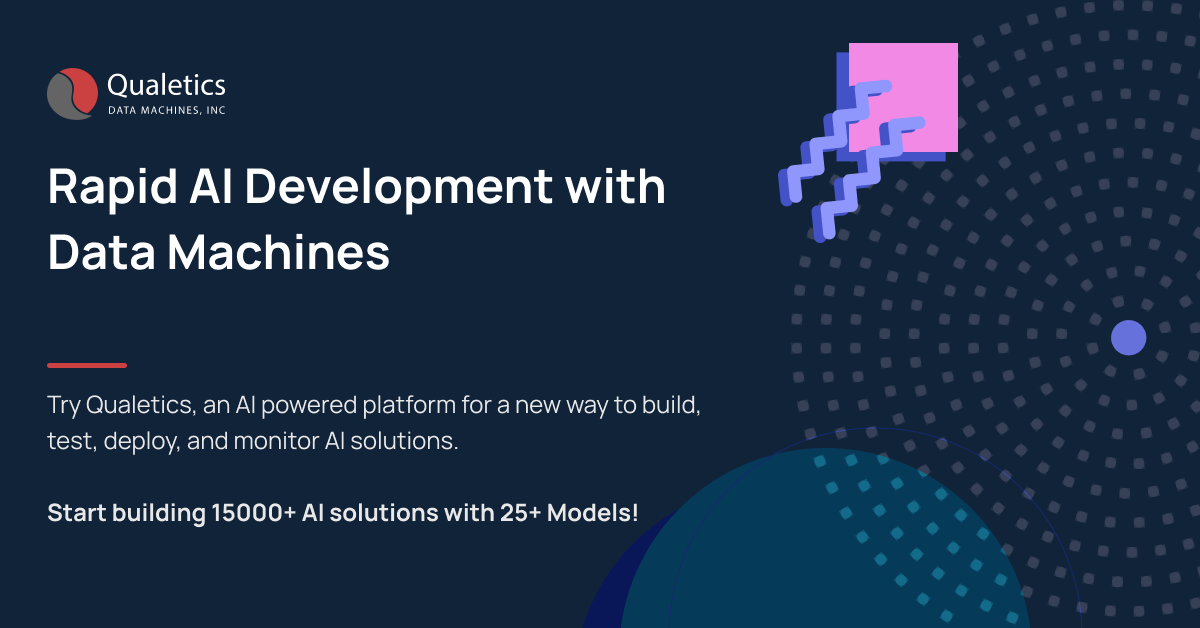Powering Hospital Information System (HIS) With AI
An AI-powered Hospital Information System (HIS)can help healthcare providers in providing better patient satisfaction, enhancing treatment outcomes and improving profitability. Is your HIS software capable of delivering Data Intelligence?
The global market size of Hospital Information Systems was USD 13.26 billion in 2015 and is expected to grow at a rate of 11.4% by 2025. The growing urge of hospitals to adopt technologically automated systems to meet the demands for efficiently managing the large volumes of data generated and its availability to the medical practitioners, when required, are the driving forces behind the adoption of Artificial Intelligence in HIS.
A comprehensive AI-powered HIS collects, stores, and communicates patients and medical data within the hospital network by integrating the system with the data collected from mobile apps, IoT sensors, EHRs, etc. With AI technology, the HIS automates the clinical. administrative, EHR, EMR, inventory and treatment processes. The primary functions of an efficient HIS should be to –
- Store and monitor patients’ data
Accurately storing the patient data digitally, performing data processing and data analysis for statistical purposes as well as research-oriented purposes. - Manage patient data flow
Seamlessly integrate with the other departments of the hospital to ensure a smooth and automated flow of patient data within the departments. - Manage financial aspects
Ensure efficient administration of finances and performing status analysis of bed occupancy, thereby in the overall performance of the HIS.
Integrating your HIS with AI
Hospitals equipped with HIS and integrated with other departments generate vast amounts of patient and medical data from all the integrated departments. This data must be harnessed to get deep data intelligence on patient inflow and outflow, data access, data security, inventory and equipment, strategies to overcome the inefficiencies in the manual procedures, etc. Integrating a HIS to various departments (like finance, inventory, operations, administration, etc) and imbibing the AI technologies will enable the healthcare providers to deliver the true patient care and enable the entire network to manage efficiently in a cost-effective way.
An AI-based integrated HIS will not just provide great flexibility in supporting a wide range of medical devices and applications but also exceed performance and cost expectations. Few points to support this include –
- A comprehensive HIS, powered with AI, networked and integrated with the inventory department will enable efficient management of the inventory, reduce the time and efforts to find out about an inventory or equipment, and keeping the inventory costs under control.
- Integrating with the Nursing call system will increase the efficiency of staff and patient safety as it enables to set personalized alarms, vital signs surveillance, etc.
- Providing integrations with the laboratory, image equipment like X-ray machines, sonography, EMRs, EHR, PACS, etc will ensure timely delivery and efficient access to the medical images with minimal errors.
- Integrations with the Finance department will provide the needed information on bed occupations, expenses, and incomes, early detection of frauds, automated billing, quick claims processing, etc.
Integrating AI with HIS will enable the entire hospital to function as a single system identifying the problems immediately and providing agile solutions, reduce human errors and deliver better service to the patients.
AI-powered Hospital Information System – Business Benefits
It is inherent that efficient HIS is necessary for a viable health system. Apart from improving patient care, HIS also benefits the healthcare providers in –
-
Improving operational efficiency
Automation of various operations will help in improving the efficiency of staff, resources, inventory, etc which contribute to the overall improvement of the hospital’s productivity, patient care, and safety.
-
Reducing operational costs
A shift from paper-based systems to a more comprehensive, integrated, and AI-based systems will not only reduce administrative costs but also improve the financial efficiency of the healthcare providers.
-
Optimizing resources
Automated process management ensures a smooth running of administrative and clinical tasks, thus optimizing resource management.
-
Enhanced visibility
Artificial Intelligence, along with Machine Learning and Deep Learning, models and statistical models provide a greater understanding of the overall enterprise needs.
-
Better data security
AI-powered HIS will help enable a role-based data access-controlled system. This will help the healthcare provider with better protection of the patient data as well as internal hospital information.
-
Ability to make informed decisions
Integrating the HIS with other digital devices with the help of AI and Data Science technologies will bring in large volumes of data from all the connected sources, thus providing deep insights. This data intelligence will enhance the ability to make data-driven, planned, and informed decisions.
Is your HIS capable of providing data intelligence? Book a Demo to check how Qualetics can help HIS software vendors embed advanced data technologies into their systems and provide effective solutions in the healthcare industry.


